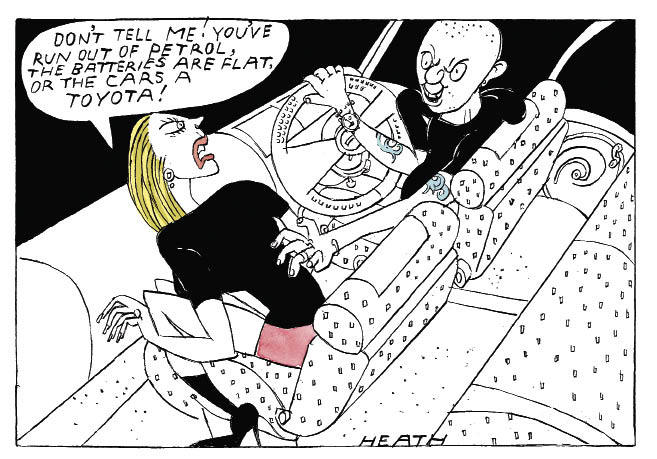Three Labour MPs, Mr Elliot Morley, Mr David Chaytor and Mr Jim Devine, and a Conservative peer, Lord Hanningfield, were charged with false accounting under section 17 of the Theft Act 1968 with regard to claims for parliamentary expenses. Lawyers for the MPs let it be known that they might claim immunity from prosecution under parliamentary privilege guaranteed by the Bill of Rights 1689. Mr David Cameron said that he had asked Sir George Young, the shadow leader of the House, to draft a Parliamentary Privilege Bill to clarify matters. Lord Hanningfield was quickly suspended from the parliamentary Conservative party and stood down as leader of Essex County Council. Three days later the MPs were suspended from the parliamentary Labour party. The prosecutions had come a day after Sir Thomas Legg, the retired civil servant entrusted with examining claims relating to second-homes allowances made by MPs between 2004 and 2008, ordered 390 MPs to pay back expenses totalling £1.12 million. Sir Thomas’s review cost £1.16 million to undertake. More than 150 MPs no longer intend to stand at the next election. A pressure group pointed out that, according to the Council of Europe, the general election would be unlawful unless prisoners were allowed to vote. Mr Gordon Brown, the Prime Minister, was said to have forsworn his habitual four Kit-Kats a day in favour of nine bananas.
Commander Ali Dizaei of the Metropolitan Police was sentenced to four years for assaulting and falsely arresting a man who had asked to be paid for doing work on his website. A man was arrested on suspicion of murdering Police Constable Keith Blakelock during the Broadwater Farm Riots in Tottenham, London, in 1985. Mr John Terry was sacked as captain of the England football team by Mr Fabio Capello, its manager, amid accusations of adultery. Sinn Fein and the Democratic Unionist party said they had reached agreement over the devolution of justice powers to the province, with the post of justice minister to go to a candidate outside the two parties. Britain is to take part in a new Nato offensive in Helmand, news of which sent thousands fleeing their villages. ‘This is not a safe environment,’ remarked Mr Bob Ainsworth, the Secretary of State for Defence, warning of more casualties. The National Audit Office said that hospitals in Afghanistan and Britain were under pressure from the large number of troops injured in Helmand province. The number of British servicemen who have died in Afghanistan since 2001 overtook the 255 killed in the Falklands campaign. Sir John Dankworth, the jazz saxophonist and composer, died, aged 82. Ian Carmichael, the comedy actor, died aged 89. Mr Hector Sants is to stand down in the summer after three years as chief executive of the Financial Services Authority; the Conservatives intend to abolish the FSA if they are elected, but suggested they might find a job for Mr Sants. Kraft, the new owner of Cadbury’s, announced the closure of its Somerdale factory in Keynsham, near Bristol, with the loss of 400 jobs; earlier it had said it hoped to keep it open.
Iran told the International Atomic Energy Agency that it had started enriching uranium to 20 per cent purity, a step towards weapons-grade uranium. France and the United States responded with threats of sanctions. Toyota, having recalled eight million vehicles with faulty accelerator pedals, withdrew 400,000 Prius models with faulty brakes, including 8,000 in Britain. A gas explosion at a power station at Middletown, Connecticut, which shook houses 30 miles away, killed five. The heaviest snow in decades swept over the United States East Coast, blanketing Washington in what President Barack Obama jokingly referred to as ‘Snowmageddon’. India deferred its first genetically modified vegetable crop of brinjal, or aubergines. Hong Kong health officials warned dieters against deliberately ingesting ascaris roundworms, which grow up to 15in long.
Confident noises about the prospects of Greece coping with its debt of 12.7 per cent of GDP were made by the Group of Seven’s finance ministers, meeting in Canada. The stock market in Greece, Portugal and Spain fell. Greek public-sector workers went on strike. The crisis dominated an EU summit in Belgium. In Spain the popularity of the conservative opposition leader, Mr Mariano Rajoy, overtook that of the socialist prime minister, Mr José Luis Rodriguez Zapatero. France agreed to sell a 21,000-ton helicopter-carrier to Russia. Mr Viktor Yanukovich, the pro-Moscow candidate, narrowly won the Ukrainian presidential elections, beating the Prime Minister, Mrs Yulia Tymoshenko. President Hugo Chavez of Venezuela signed a decree authorising emergency powers over electricity consumers during the drought that has reduced the hydroelectric supplies on which the country depends. President Jacob Zuma of South Africa, aged 67, who has three wives and 19 children, apologised for fathering a 20th by a woman not his wife. CSH






Comments